Greece election: Alexis Tsipras on brink of return to power - to implement the austerity he fought so hard against
Victory for Syriza will mean carrying out the Troika's demands of sell-offs and slashed budgets
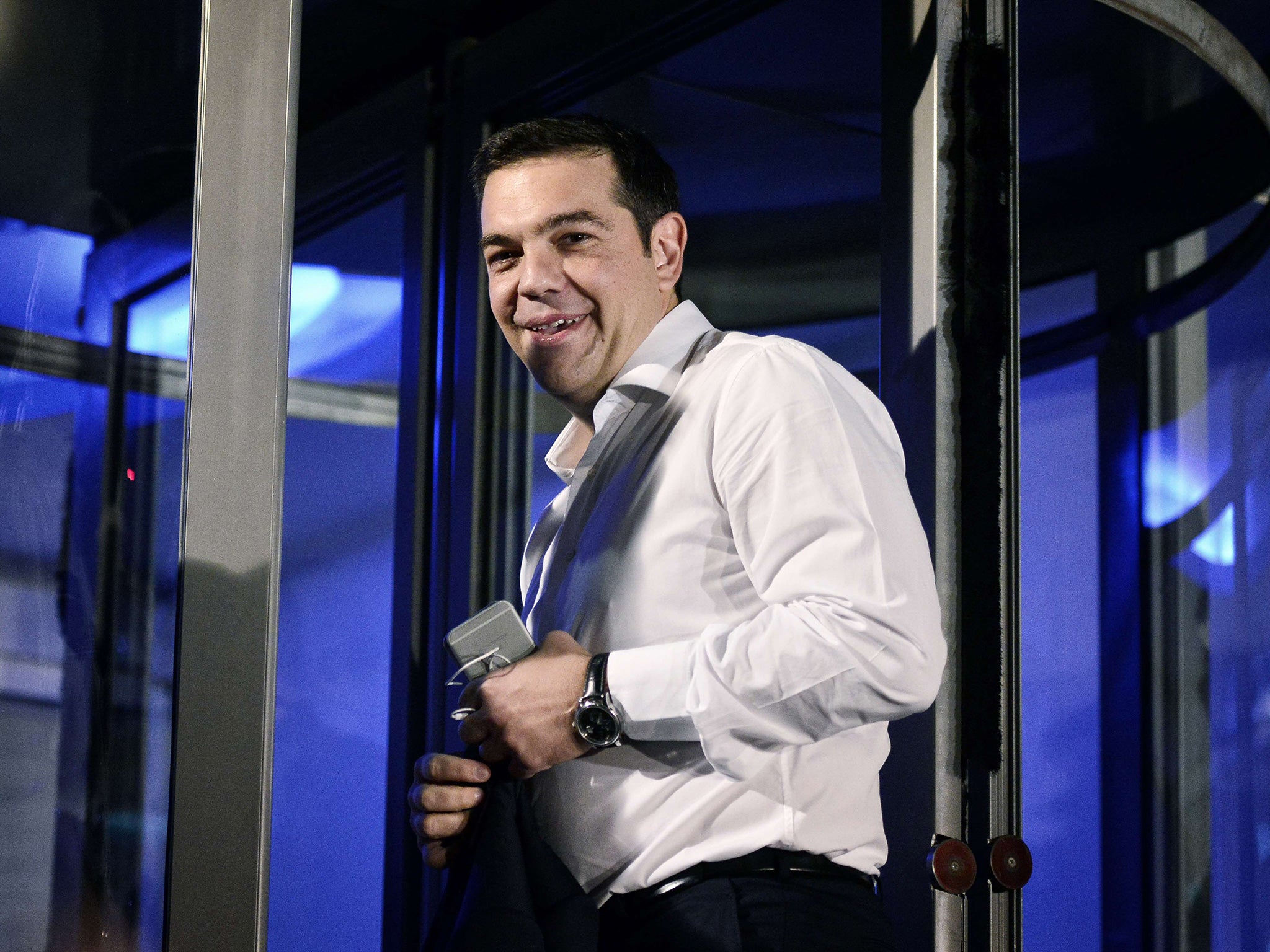
Your support helps us to tell the story
From reproductive rights to climate change to Big Tech, The Independent is on the ground when the story is developing. Whether it's investigating the financials of Elon Musk's pro-Trump PAC or producing our latest documentary, 'The A Word', which shines a light on the American women fighting for reproductive rights, we know how important it is to parse out the facts from the messaging.
At such a critical moment in US history, we need reporters on the ground. Your donation allows us to keep sending journalists to speak to both sides of the story.
The Independent is trusted by Americans across the entire political spectrum. And unlike many other quality news outlets, we choose not to lock Americans out of our reporting and analysis with paywalls. We believe quality journalism should be available to everyone, paid for by those who can afford it.
Your support makes all the difference.His face is plastered across Athens and Alexis Tsipras, former Prime Minister and leader of Syriza, took to the stage in Syntagma Square, in the heart of the capital, to cap his election campaign with a triumphal rally. The 41-year-old former communist who came from nowhere to lead Greece’s left-wing radicals three years ago is the man to beat in Sunday’s general election.
Recent polls have shown the two main parties, Syriza and the conservative New Democracy, are virtually neck and neck. A number of polls released on Friday showed Syriza ahead by up to one percentage point, but others have pointed to a victory for New Democracy, led by Vangelis Meimarakis.
Mr Tsipras brushed off claims that his party might lose out, saying that there was a large group of Syriza supporters not reflected in the polls.
“There is a voting body that is below the radar, it is not being traced,” he told Greece’s ANT 1 television.
But the former engineer’s jaunty grin cannot disguise his bizarre predicament. If he is returned to power, he will be obliged to carry out a swathe of major privatisations.
Unlike many of his party comrades, Mr Tsipras has always been committed to keeping Greece inside the eurozone. But in the run-up to January’s election he persuaded himself and more than 30 per cent of Greece’s voters that he could manage that feat while bringing an end to the debt-dictated depression which has cut the nation’s domestic product by 40 per cent and reduced millions to penury.
What ensued was a scarily steep learning curve, an extended lesson in how weak Greece’s position really was, and the very limited extent that youthful swagger could redress the imbalance.
Negotiations with the Troika, composed of the European Commission, the European Central Bank and the International Monetary Fund, began after the January election, but Tsipras quickly discovered that the bankers were offering no wriggle room. Greece could accept the tough terms of the proposed third bailout – or go bust.
Acceding to the Troika’s demands was inconceivable: apart from anything else, Syriza would not wear it. The name means “coalition of the radical left”; it is a loose affiliation of 16 groups, ranging from Maoists to environmentalists. Tsipras’s faction was solidly behind remaining in the eurozone but others were not – and remaining inside on the Troika’s terms was the last thing they planned to do. A former Syriza official said, “Tsipras had to keep a balance between keeping Greece in the euro and holding the party together.” His solution: calling a referendum to throw the burden of choice onto the Greek people as a whole.
But the plan misfired badly. Greeks voted overwhelmingly to reject the bail-out deal, but this only reinforced the determination of the bankers to obtain the conditions they had previously insisted upon.
Tsipras was forced to accept the one thing he had held out against all along: massive privatisations. The anti-euro faction of Syriza bolted, and his government fell. “Over the past six months, the confidence that Greece has the power to beat austerity has disappeared,” said Nick Malkoutzis, editor of Macropolis journal.
“People have realised that the country’s options are very limited.”
In the weeks since then, Mr Tsipras has recovered some of his former bounce. Although bound to the Troika’s terms for the new three-year, €86bn bailout, his radical rhetoric continues to flow.
“The problem at the heart of European leadership today,” he told Euronews recently, “is that it is dominated by a harsh, dogmatic, neo-liberal policy.
“Of course Greece needs reform, but if we are talking about the opening of closed professions, I wouldn’t start with hairdressers but media owners. I wouldn’t talk about selling off public property but reform of the state so it would be effective and serve the citizens.”
But now everyone knows that he will have to do the precise opposite of what his political convictions dictate: selling 14 regional airports along with ports, marinas and the crumbling infrastructure of the 2004 Olympics in the hope of raising enough money – €50bn is the highly ambitious goal – to keep the bailout funds flowing.
Yet many are minded to give Mr Tsipras another chance. “He still has the power of momentum,” said Aristides Hatzis, an associate professor of economics and law at the University of Athens. “Like David, he tried to take on Goliath and he did his best.”
“He has grown in leaps politically, but his decisions are a result of his fears,” said a former Syriza colleague who is now with another party. “Fear that he will be the prime minister who leads Greece out of the euro, fear his party will split, and also fear that he is betraying the ideology he has fought for and believed in since he was a child.”
Profiles: Tsipras’ main rivals for power
1. Vangelis Meimarakis
Democracy Now, the conservative party that ruled in alternation with Pasok, the socialist party, for decades. They share the blame for the fix Greece is in, due to corruption and packing government bureaucracies with political allies. But Democracy Now is enjoying a comeback under Meimarakis, an accidental leader whose relaxed style is winning back support. A lawyer and career politician, he told a rally of 5,000 in central Athens last night that Tsipras was “a peddler of dreams”. But many suspect he would work with Tsipras to regain power.
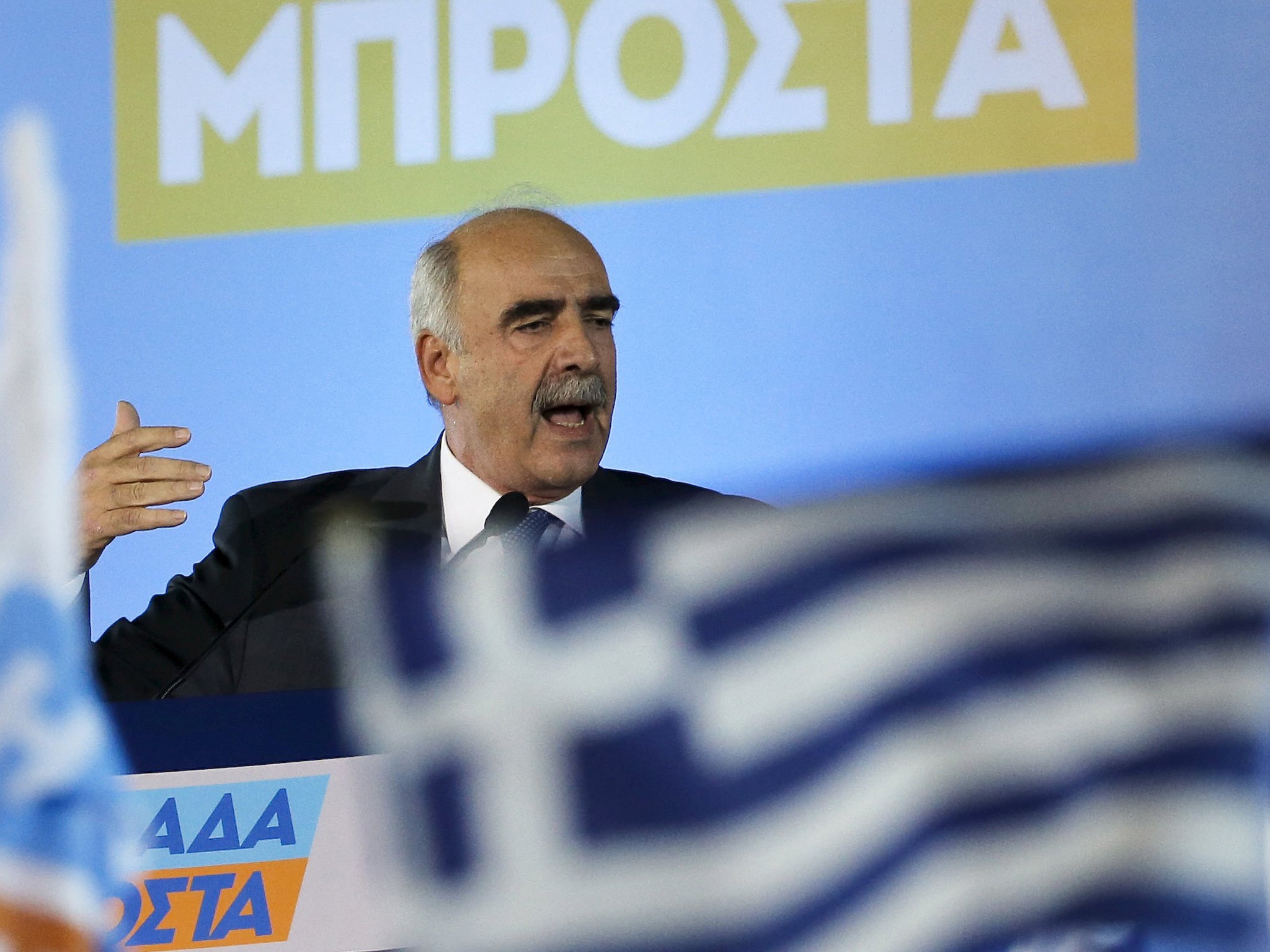
2. Panagiotis Lafazanis
Leader of the breakaway Popular Unity party, veteran radical leftist whose breach with Tsipras over terms of the new bailout provoked the split in Tsipras’s party, Syriza, which brought down the government. Less than a month old, Popular Unity has mounted a vigorous campaign and is the most prominent of several smaller parties campaigning for Grexit.
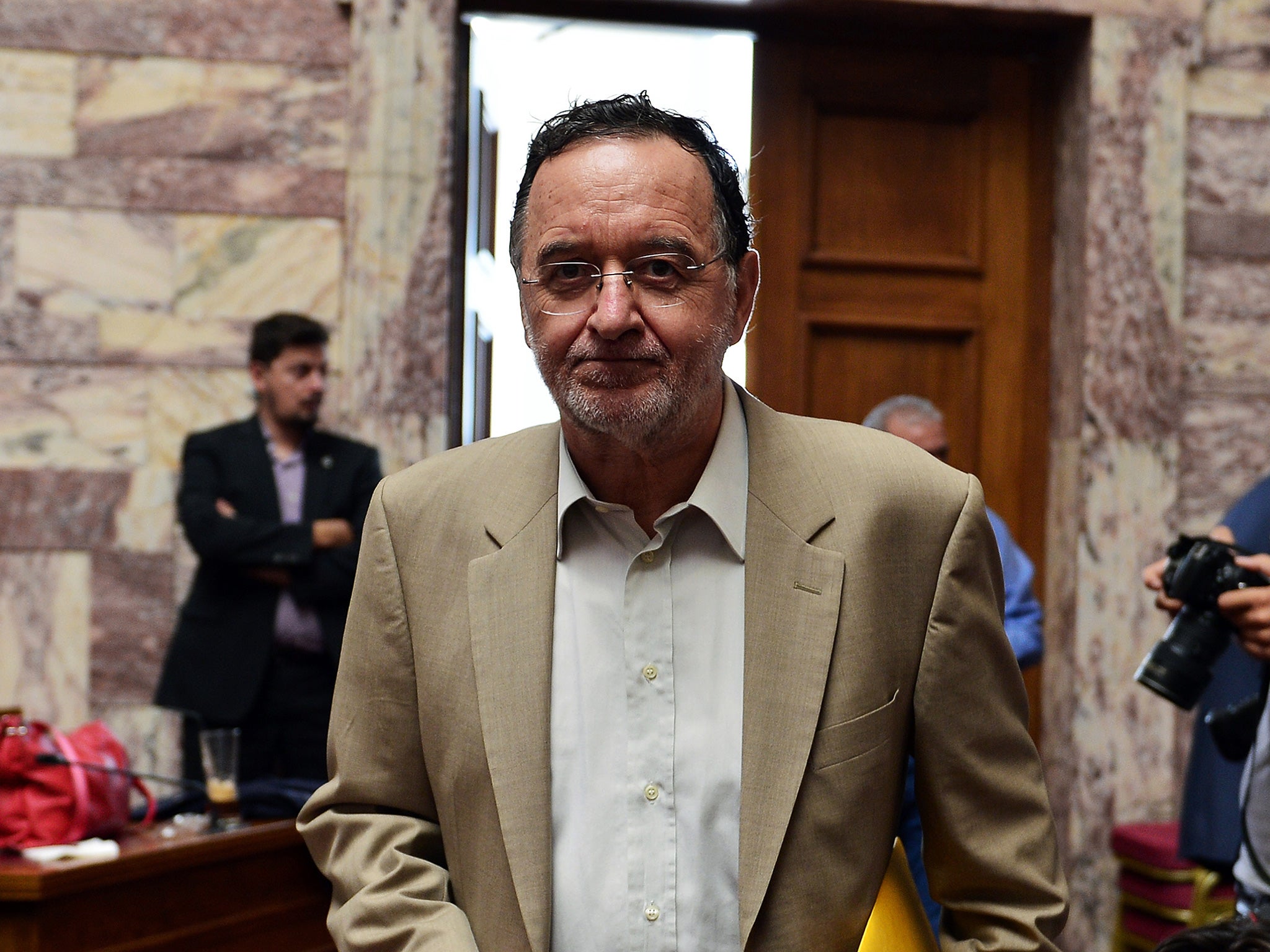
3. Nikos Michaloliakos
Leader of the overtly neo-Nazi Golden Dawn. This is the third party in size after Syriza and New Democracy, and, as in previous elections since its foundation in 2012, is expected to win 20 or more seats. Like Popular Unity and the Communist Party, Golden Dawn says “no” to austerity and the bailout, and is also rabidly nationalist and anti-immigrant. Michaloliakos and his senior colleagues are on trial for the alleged murder of an anti-Fascist hip-hop musician. They pleaded not guilty, but this week the leader admitted “political responsibility” for the killing.
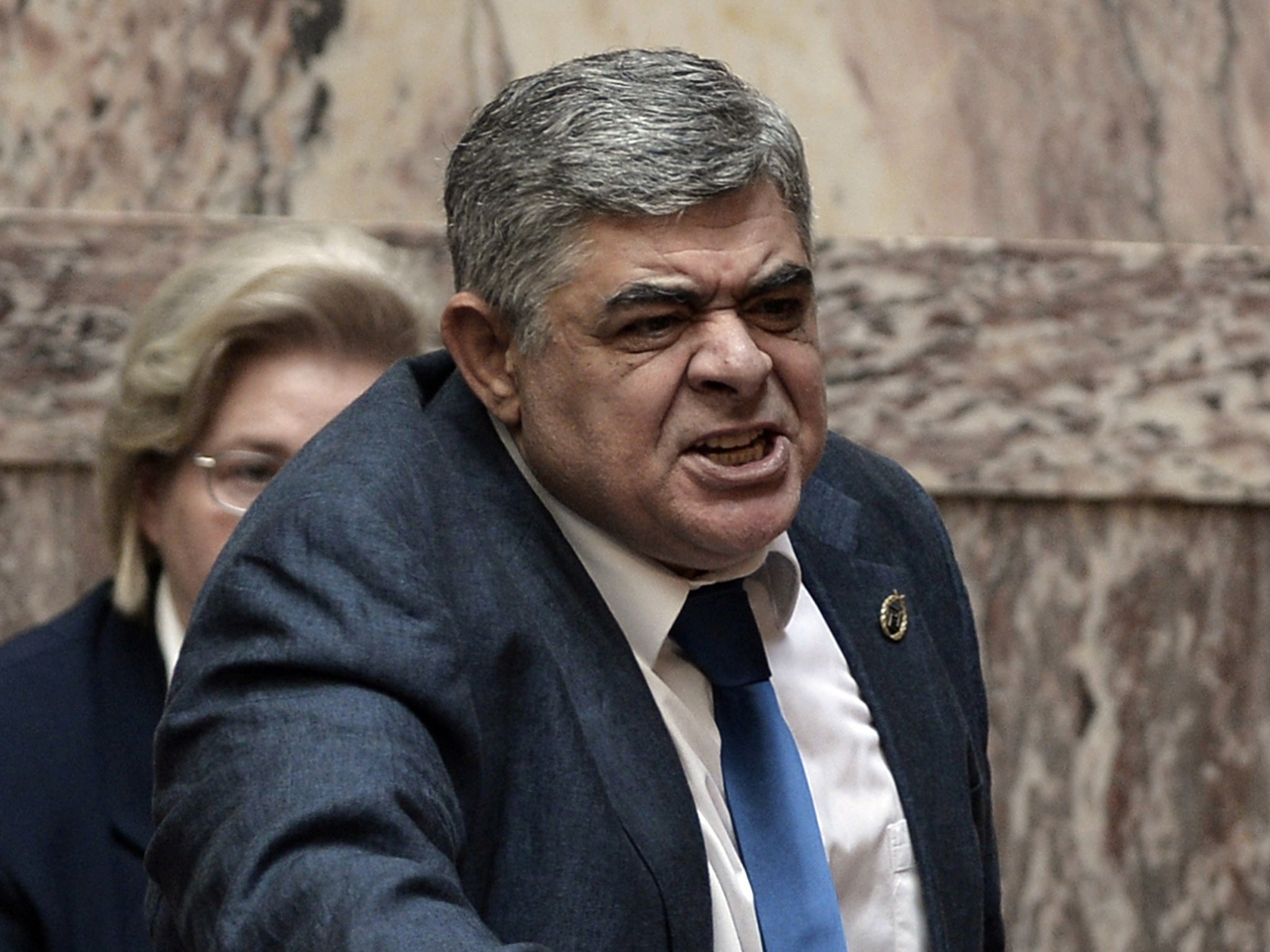
4. Yanis Varoufakis
Improbable friend of Norman Lamont and George Osborne, Tsipras’s former finance minister is playing no part in the election but with his leather outfits and powerful motorcycle he became the most famous and glamorous figure in the whole story. He was Tsipras’s close comrade in the bailout negotiations until he was frozen out by his European counterparts.
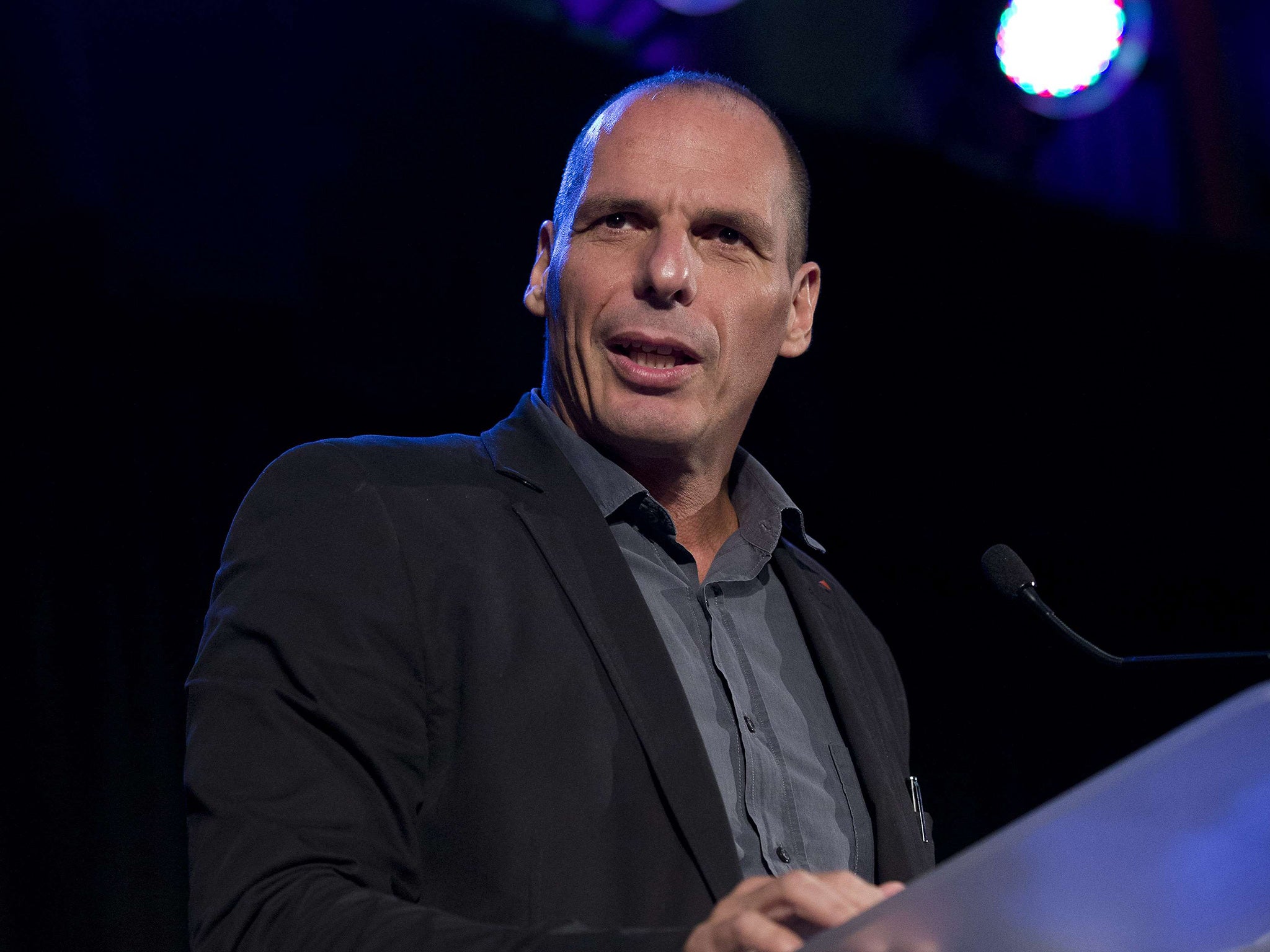
Join our commenting forum
Join thought-provoking conversations, follow other Independent readers and see their replies
Comments